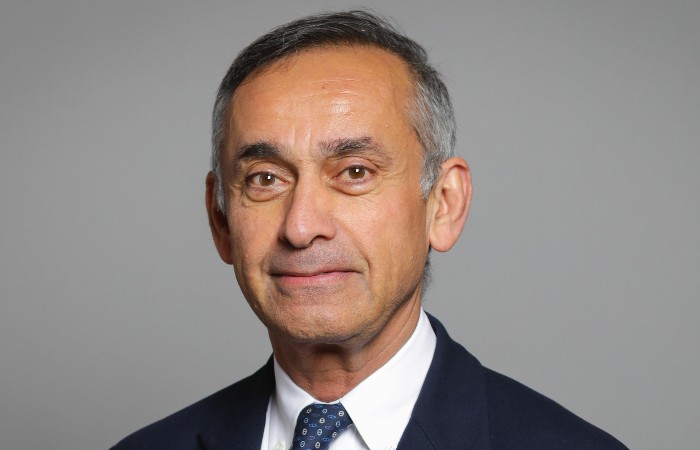News

Pharmacies can help ‘broken’ NHS but are struggling on few resources, warns Lord Darzi
In News
Stay up to date with all the news, learning and insight in the world of pharmacy.Bookmark
Record learning outcomes
A report by Lord Darzi laying out the problems facing the NHS and potential solutions has been published today and warns community pharmacies are closing at an alarming rate while those remaining open are struggling with few resources.
In his report, based on a study commissioned by Labour when it came to power, Lord Darzi (pictured), a former health minister in Gordon Brown’s government, said the NHS was “in serious trouble,” with people struggling to see a GP and waiting lists for community services and mental health surging.
He said A&E was “in an awful state” and waiting times for hospital procedures had “ballooned.” By June this year, over 300,000 people had waited for more than a year for treatment and 1.75 million had waited six to 12 months.
Crucially, given community pharmacy’s funding problems, Lord Darzi said too much of the NHS budget was being spent in hospitals and “too little” in the community.
He pulled no punches when it came to assessing community pharmacy’s predicament, insisting pharmacies “are now closing in significant numbers,” with 1,200 shutting their doors since 2017.
He warned the total level of spending on the community pharmacy contract had fallen by eight per cent at a time when pharmacies were being asked to provide more services.
However, prime minister Keir Starmer today said there would be no more money for the NHS without reform as Labour draw up their 10-year plan to fix the health service.
Huge potential for step change in the role of pharmacists
Lord Darzi highlighted the success of Pharmacy First as an example of community pharmacy providing “value-added services for the NHS.”
He also pointed to pharmacy’s ability to reach people living in deprived parts of England, as well as a growing number of pharmacist independent prescribers. However, Lord Darzi warned pharmacies lacked funding and resources.
“There is huge potential for a step change in the clinical role of pharmacists within the NHS. Expanded community pharmacy services are likely to include greater treatment of common conditions and supporting active management of hypertension,” he said.
“But there is a very real risk that on current trajectory, community
Lord Darzi said social care was under-resourced, describing it as “dire” and insisting it had put “an increasingly large burden on families and on the NHS, with a profound human cost and economic consequences.”
NPA: We desperately need to invest in grassroots community healthcare
The National Pharmacy Association chief executive Paul Rees (pictured below) said Lord Darzi was “right to point to the huge opportunities for pharmacies” but warned they need “urgent attention.”
“We desperately need to invest in grassroots community healthcare like our pharmacy network, otherwise the Government’s ambitions to reform the NHS simply won’t work,” Rees said.
“Wes Streeting says he wants to invest in primary care – pharmacies see more people each day than any other part of the NHS yet are on their knees, so he needs to talk to us and get on with it.”
CPE: Community pharmacy receives less funding than other parts of NHS
Community Pharmacy England chief executive Janet Morrison said the report’s findings “paint a bleak picture of primary care” but “even more so for community pharmacy.”
She warned the sector has received less funding “than any other part of the NHS, with a 30 per cent cut in real terms over the last seven years and a fall in share of the NHS budget from 2.4 per cent to 1.6 per cent.”
At the same time, Morrison added, pharmacies have provided “far greater efficiency, with year-on-year increases in dispensing of 160 million items and a 350 per cent increase in service delivery.”
She warned that without better funding, pharmacies will close and that will jeopardise the supply of medicines to patients.
“The stark financial situation has reached a tipping point, and the degradation of service and risk of collapse is now putting at risk the most basic of the public’s expectations of the NHS – the safety of their medicine supply – critical to the 48 per cent of the population who rely upon their pharmacies for their repeat prescriptions,” she said.
Community pharmacy contractual talks between CPE and the government for 2024-25 are expected to restart this month.
CCA: We hope action is taken before it is too late
Company Chemists’ Association chief executive Malcolm Harrison warned an “expanded role for community pharmacy is only possible if there is action to protect the existing community pharmacy network through additional investment.”
“We wholeheartedly support a greater proportion of NHS funding being directed to community settings,” he said.
“We hope that the report’s findings spur action before it is too late, and patients lose access to the local pharmacies that they have come to rely on.”
English Pharmacy Board chair Tase Oputu said policy discussions should focus on making the most of community pharmacy through “workforce planning, prescribing budgets and the commissioning of new services to use pharmacists’ skills.”
“At the same time, warnings of pharmacy closures must be addressed so that patients can continue to access a resilient community pharmacy network," she said.


